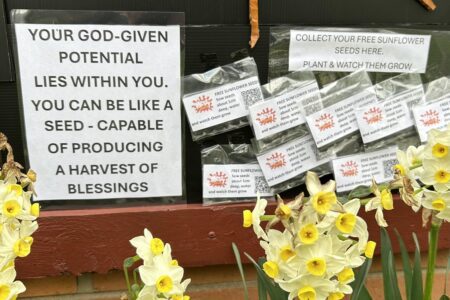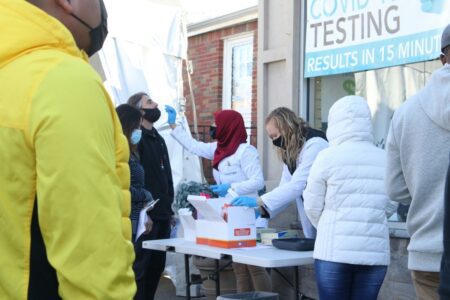Poppy, how do rocks grow?
The greatest superpower grandparents possess when it comes to connecting children to nature is TIME.
Time outdoors together in any weather, fostering a child’s natural curiosity, undistracted by other pressures or expectations of cleanliness.
Able to stop when the child stops; to literally take time to smell the roses, look at rocks, puddles, ants and trees, drawing attention to birds heard, shapes of clouds, and changes in the seasons.
Even to notice things that shouldn’t be there (like that discarded drink can or plastic straw).
Modelling care for creation by picking up that rubbish, rather than just walking past, involving the child in the wonders of composting: turning kitchen scraps into soil.
Together with a child, grandparents can dig, plant and wait for things to grow … and share the joy of harvest.
Possibly learning important life lessons, like some food does grow on trees (before it gets to a supermarket) and that “green strawberries taste yucky”.
Children notice what we’re passionate about and are natural mimics. Curiosity is contagious.
We won’t have answers to all their questions, but we can applaud them for asking and commit to discovering things together.
“No, I don’t know what that bug is? But let’s take a picture of it and look it up together on the iNaturalist app on my phone.”
To have the privilege of seeing God’s world through sharp little eyes is a gift to be fostered and celebrated together.
So now stop looking at your phone and get out there with your grandkids.
By Prof Mike Clarke, Professor of Zoology at La Trobe University, and Cathie Clarke, key leader of Banyule Messy Church. Cathie and Mike are members of Cross Generation Uniting Church, a congregation of the Banyule Network of Uniting Churches.





